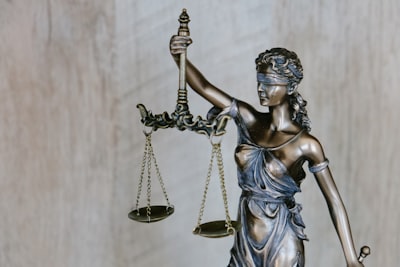Sean 'Diddy' Combs, a mogul synonymous with entertainment, finds himself facing the ultimate public stage—not a concert, but a courtroom. As his lawyers denounce proceedings as a 'fake trial' during final arguments, the spotlight shifts from Combs’ alleged actions to the credibility and mechanics of the justice system itself.
Entertainment Meets Justice: The Collision
Diddy's trial isn't just about one man's fate—it's a case study in how celebrity, media, and the legal process intersect. Defense attorneys have worked not only to dismantle the prosecution’s arguments but to cast doubt on the integrity of the entire trial, using language calculated to echo public skepticism about judicial fairness.
Why call it a 'fake trial'? This rhetoric suggests the defense believes procedural injustice or outside manipulation undermined any chance at true fairness. While such claims are common in showbiz scandals, the intent is clear: sway jurors not just on the facts, but on the system’s legitimacy.
| Perspective | Key Arguments | Implications |
|---|---|---|
| Prosecution | The evidence is strong; jury must consider facts, not fame. | Accountability, rule of law matters regardless of celebrity. |
| Defense | Process is tainted—fairness is impossible. | Distrust in institutions can snowball, especially if the public buys in. |
The Larger Picture
Combs is not the first (or last) entertainer to challenge the court of law by appealing to the court of public opinion. When lawyers declare a process 'fake,' they exploit society’s anxieties about institutional trust—a trend gripping not just entertainment, but politics and business worldwide.
Such rhetoric risks normalizing cynicism towards justice. Yet, for some, it validates real concerns about disparities and systemic flaws—consider previous celebrity cases where verdicts seemed swayed by fame or public sentiment rather than purely evidence.
Why It Matters
The Diddy trial is a microcosm of a larger societal dilemma: can justice be both done and seen to be done amid media spectacle? For everyday citizens, the debate is more than tabloid fodder. It shapes trust in courts, impacts jury impressions, and could even influence jury duty participation rates.
Actionable Insight: Demand for transparency and impartiality only grows louder in high-profile cases. Advocates suggest real-time public access to proceedings (e.g., livestreams, clear summaries) as a counter to spin—arming citizens with facts, not just opinions.
Surprising Twist: In the digital era, once-closed courtrooms are open to all, but this access is double-edged: it fuels both accountability and confusion, as competing narratives battle for dominance.
The outcome of this trial will ripple beyond Diddy’s fate. It will signal—to celebrities, lawyers, and the public—whether legal theatrics can upstage the pursuit of truth.
This article was inspired by the headline: 'A 'fake trial': Sean 'Diddy' Combs' lawyers make final arguments to jurors'.

Comments
No comments yet. Be the first to comment!